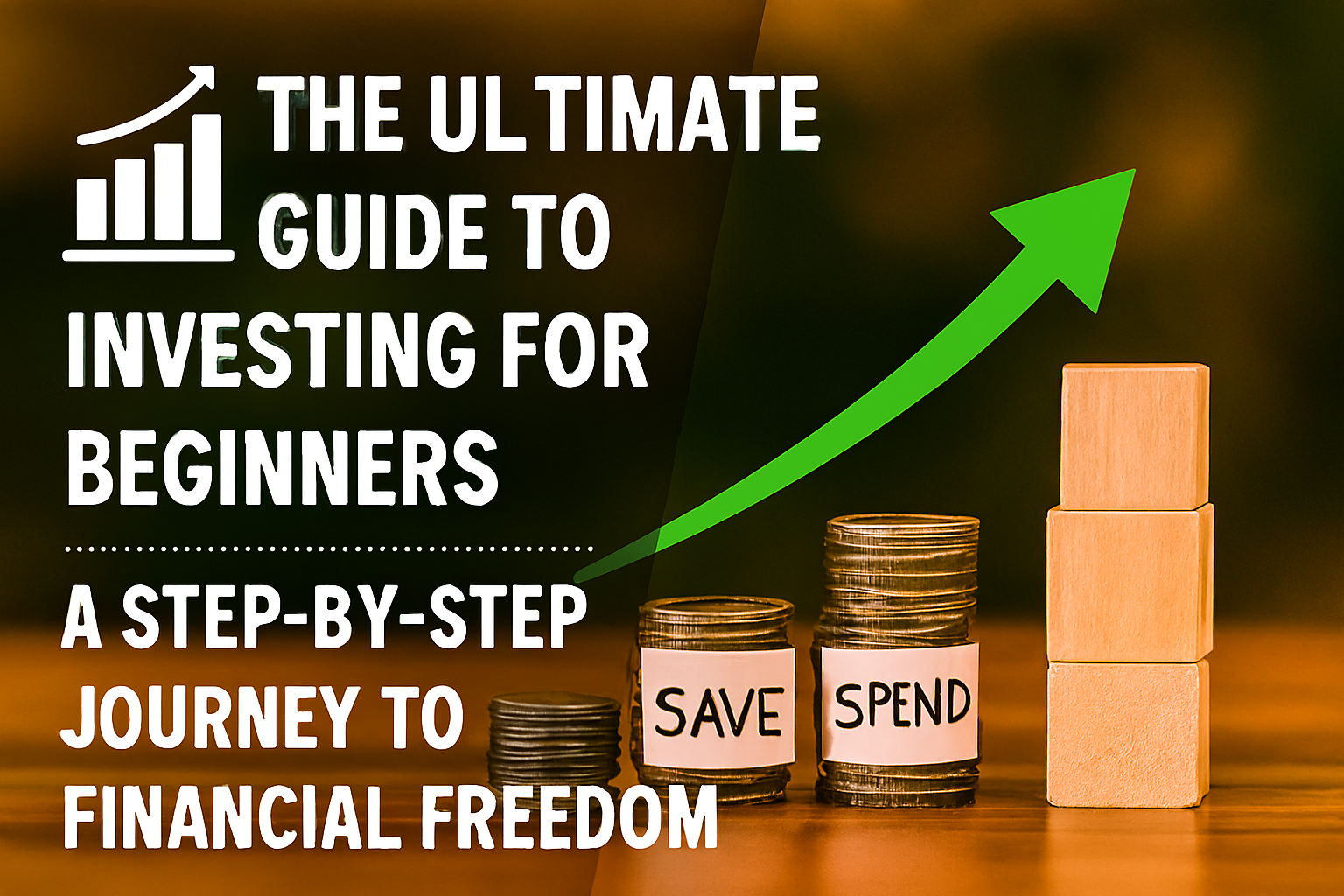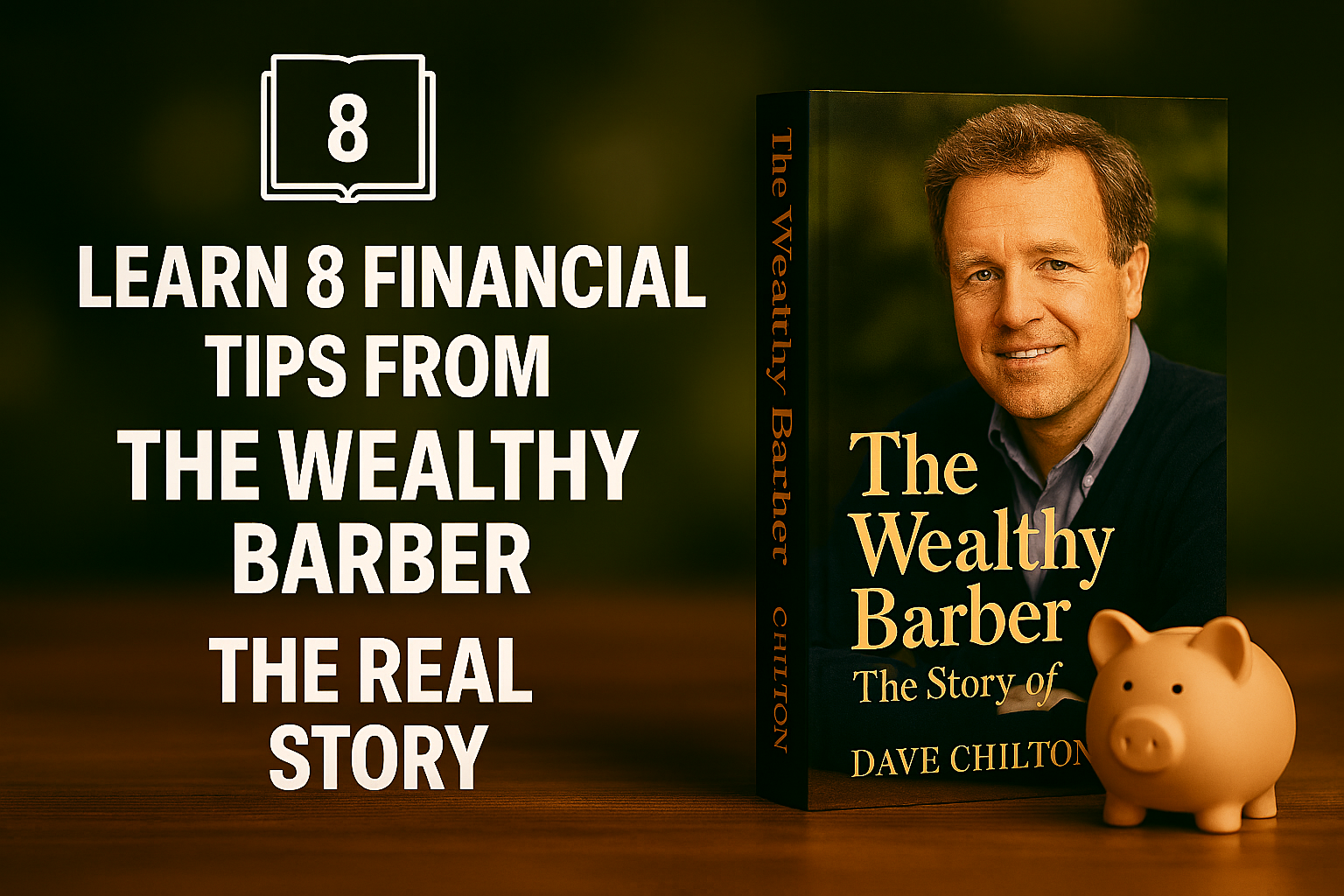
Imagine waking up in the morning, brewing a cup of coffee, checking your phone, and seeing that your money has increased while you were slept. It sounds fantastic, doesn't it? But that's investment, and it's genuine. Nevertheless, a lot of novices in the United States are hesitant to make that initial move because they think investing is dangerous, unclear, or only for Wall Street financial gurus. In actuality, investment is about patience, comprehension, and cultivating a growth mentality rather than luck or intricate arithmetic. From the fundamentals to creating your first portfolio, this guide will explain everything in plain, easy-to-understand English. No pressure, no perplexing jargon. Just some clarity. Now is the moment to start using your money to help you, not the other way around.
Your money is essentially sleeping if it is in a savings account, and inflation steals away its value annually. Contrarily, investing is like waking up and putting your money to work. However, investing is more than just "purchasing stocks." It involves utilizing your finances to buy assets that appreciate in value over time, such as stocks, bonds, mutual funds, or real estate. Inflation in the United States typically hovers around 3% each year. This implies that in ten years, $10,000 saved now will not purchase as much as $7,000 worth of products. Investing protects and increases the real worth of your money while accelerating its growth over inflation.
As an illustration, Sarah's checking account used to hold $300 per month. She later started investing the same $300 every month in an ETF that tracks the S&P 500. Her assets increased to nearly $55,000 after ten years, although her companion only saved $36,000. Different outcomes with the same amount of work.
Investing is much more about patience and discipline than it is about numbers. Many novices worry when the market declines or seek out quick returns. True investors, however, remain composed despite the turmoil. Because of their nature, markets fluctuate, yet long-term investors consistently outperform them. You will burn out if you approach investing as a get-rich-quick plan. However, it will develop into something transformative if you approach it like planting a tree: steadily, patiently, and nurturingly. "The stock market is designed to transfer money from the active to the patient," as Warren Buffett once put it.
For instance, millions of investors sold off their investments out of fear during the 2008 financial crisis. However, throughout the ensuing ten years, the wealth of individuals who maintained their composure and continued investing increased. By 2020, an investment of $10,000 in 2008 had grown to over $40,000. Accidents are opportunities masquerading as panic, not tragedies.
A lot of individuals think the stock market is a gambling ground. It isn't. Purchasing stock is essentially purchasing a small portion of a business. You profit when that business does. One of the most potent wealth-building tools ever invented is the U.S. stock market, which includes exchanges like NASDAQ and NYSE.
This is how it operates: businesses raise capital for expansion by selling shares. Brokers or internet marketplaces are used by investors to purchase those shares. Each share's price fluctuates according to the company's performance, investor sentiment, and general economic conditions. But in the long run, the market constantly moves upward because of business expansion, productivity gains, and innovation.
For instance, $1,000 invested in Apple shares in 2010 would currently be worth more than $14,000. That is the outcome of compound growth and faith in long-term potential, not chance.
There are numerous ways to build money in the world of investing, each with a unique mix of risk and return. Let's make them simpler:
1. Stocks: They have a tremendous potential for growth, but they can be volatile in the near term.
2. Bonds: Ideal for balance, they offer consistent, low-risk returns.
3. ETFs & Index Funds: Excellent for novices, these funds enable you to invest in a wide range of businesses simultaneously.
4. Real estate: Stable and tangible, you can make money from rent or the growth of your property.
5. Retirement Accounts (401k, IRA): Provide tax advantages that accelerate the growth of your funds over time. The key is diversification, which lowers risk by distributing your funds among several investment kinds.
For instance, Mike, a 27-year-old teacher, began investing $500 a month, placing 20% in Treasuries, 60% in index funds, and 20% in crowdsourcing real estate. Five years later, his wealth had grown to $42,000, and he never worried about market fluctuations.
Compound interest was dubbed the "eighth wonder of the world" by Albert Einstein. It's straightforward but enchanted: your wealth grows exponentially when your money generates interest and that interest begins to generate even more interest. The essential component is time. Let's say you invest $200 per month with an average yearly return of 8%. Even though you only invested $72,000, you will have more than $270,000 in 30 years. Compound growth provided the remaining amount.
For instance, at the age of 25, Emma began investing $200 a month. Jake, her companion, started at age 35. They both made 8% a year. Emma had $293,000 by the time she was 55, whereas Jake had just $132,000. Jake lost more than $160,000 because of the ten-year delay. The lesson is that starting early is more important than the amount of money invested.
Investing in the United States is now easier than ever thanks to technology. With platforms like Vanguard, Charles Schwab, Fidelity, and Robinhood, you may begin investing with as little as $5. Investing can be automated, relieving the burden of continuous decision-making. You can monitor your finances and net worth with the use of budgeting tools like Mint and Personal Capital. Try robo-advisors like Wealthfront or Betterment if you'd rather take a more hands-off approach. These platforms invest your money automatically based on your risk tolerance and goals.
For instance, David, a 24-year-old bartender, started using a robo-advisor to invest $50 every week. Over the course of five years, his portfolio increased smoothly to $15,000 without requiring him to comprehend intricate charts or trends. Significant financial changes can result from little, regular actions.
Risk is a part of every investment, but it shouldn't be feared. The true risk is not knowing what you're investing in. Short-term stock declines are possible, but historically, stocks have always rebounded and increased. That's how much volatility you can handle. Increase your diversification into bonds or index funds if you have trouble falling asleep at night when the market drops 10%. Astute investors manage risk rather than completely remove it.
For instance, in 2020, Lisa and Robert each contributed $10,000. Lisa panicked and sold everything when the market crashed. Robert remained composed and waited. Robert's portfolio increased to $14,000 after two years, while Lisa's had hardly recovered from its initial state. Panic is always defeated by over patience.
Although it may seem difficult, building a portfolio is actually very simple. method:
1. Establish Your Objective: Are you investing for financial freedom, a home, or retirement? Your strategy is determined by your goal.
2. Select Your Mix: A 70% index fund, 20% bond, and 10% cash or REIT ratio can be an approachable one for beginners.
3. Automate Everything: Establish monthly automatic transfers to eliminate emotion and increase consistency.
For instance, Tom, a 30-year-old nurse, invested $400 a month automatically in an S&P 500 ETF. He continued investing despite the short-term news. Without ever "actively managing" it, his account increased to over $75,000 ten years later. Perfection is not as effective as simplicity.
Even the most intelligent novices make mistakes. Among the most frequent errors are: Making an effort to "time" the market Using internet random stock suggestions Ignoring hidden costs and taxes Not diversifying Fear-based selling during recessions Patience, not panic, is rewarded in the market. Build a solid foundation by saving for emergencies, investing in a variety of assets, and developing dependable habits rather than following trends. As an illustration, in 2021, Reddit user "JohnNYC" put all of his savings into a popular tech stock. A 70% stock market disaster erased years' worth of investments. He learned a crucial lesson from that experience: I won't invest in a firm if I can't understand how it earns money.
Investing is a continuous engagement with your financial future rather than a one-time event. The objective is to create freedom, not just wealth. liberty to decide on your future, your time, and your way of life. Continual learning through reading books, viewing reliable channels, and monitoring your progress is what a growth mindset entails. You just need to start regularly; you don't have to be flawless.
For instance, the creator of The Pursuit of Happyness, Chris Gardner, started with nothing. But he developed a prosperous investing profession via perseverance, education, and self-belief. His example demonstrates that starting doesn't require wealth; rather, starting leads to wealth.
Investing requires more than just math; it also requires faith in oneself. Your future self is the object of every dollar you invest. It doesn't matter if you start with $10 or $1,000; what matters is the habit. Your attitude will determine where you end up, even though the market will rise and fall. So get started right away. Acquire knowledge, make investments, and allow time and compound interest to work in your favor. Just be ready for the future; you don't have to foresee it. Your journey to financial freedom is only getting started, so if this book helped you realize the true power of investing, hit the notification bell and subscribe. 🌱

Imagine this While enjoying coffee at a café, your twenty-five-year-old acquaintance remarks ...
 Tajib Ali
Tajib Ali
Your twenties are a time of freedom. You fantasize of creating the finest life possible after ...
 Tajib Ali
Tajib Ali.png)
We frequently hear financial advice and assume that saving money is merely a habit that takes time a...
 Tajib Ali
Tajib Ali.png)
Have you ever wondered how the most important financial choices are made in the world? Michael Lew...
 Tajib Ali
Tajib Ali.png)
One of those financial instruments that can simultaneously offer you freedom and risk is a credit ca...
 Tajib Ali
Tajib Ali.png)
However, the majority believe his tactics are exclusive to Wall Street gurus or billionaires. ...
 Tajib Ali
Tajib Ali.png)
Imagine, brothers and sisters, that you have earned a college degree and are free of student loan de...
 Tajib Ali
Tajib Ali
Ever wonder why some people, despite having ordinary salaries, manage to build long-term financial s...
 Tajib Ali
Tajib Ali
Imagine this: Your graduation cap has just been thrown into the air. Your degree is your...
 Tajib Ali
Tajib Ali
Comments (0)
Leave a Comment